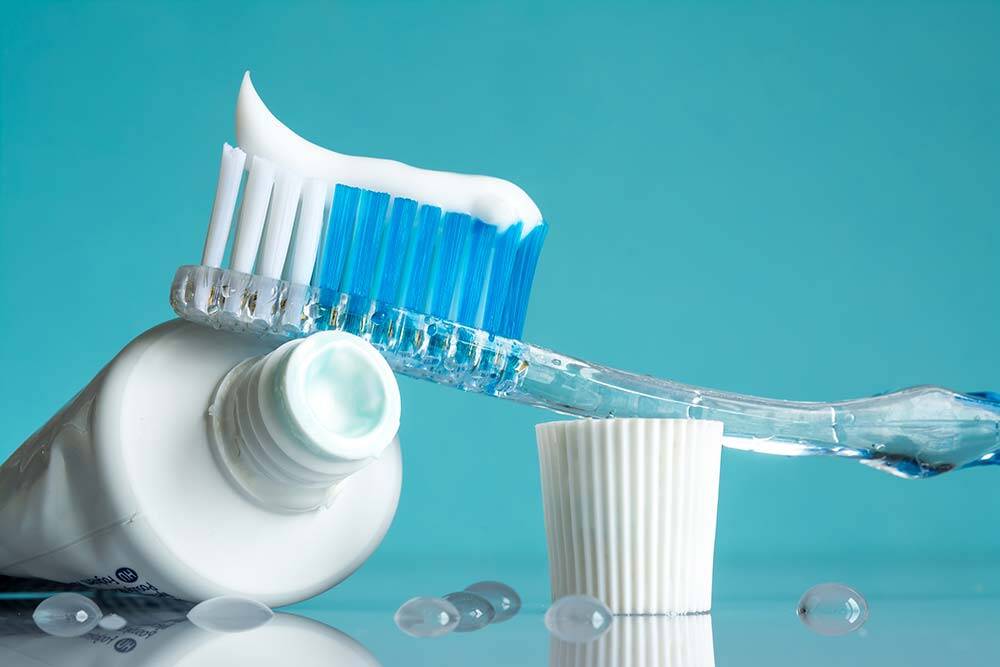12+ Fluoride Tips For Healthier Smiles

Fluoride is a naturally occurring mineral that has been extensively researched for its oral health benefits. It is widely recognized for its ability to strengthen tooth enamel, making teeth more resistant to decay and sensitivity. However, the role of fluoride in oral health extends beyond these well-known benefits. In this article, we will delve into the complexities of fluoride, exploring not only its advantages but also its potential drawbacks and the importance of balance in its application.
Introduction to Fluoride
Fluoride is found in small amounts in many foods and water sources. Its incorporation into dental health practices, such as through fluoridated toothpaste and community water fluoridation, has been a cornerstone of preventive dentistry. The mineral works by promoting the remineralization of tooth enamel, thereby reversing early stages of tooth decay. It also inhibits the growth of harmful oral bacteria, further reducing the risk of cavities.
12 Tips for Healthier Smiles with Fluoride
Understand Fluoride Sources: Beyond toothpaste and water, fluoride can be found in certain foods and supplements. Understanding these sources can help in managing fluoride intake, especially for children, to avoid overexposure.
Use Fluoride Toothpaste Correctly: The American Dental Association (ADA) recommends using a fluoride toothpaste with the ADA Seal of Acceptance, which indicates that the product has met standards for safety and effectiveness. It’s also crucial to use the right amount for children to prevent over-ingestion.
Community Water Fluoridation: For areas where water fluoridation is available, it can be a highly effective method of delivering fluoride to the community. It’s essential to be aware of the fluoridation level in your local water supply.
Professional Fluoride Treatments: Dentists can apply professional fluoride treatments, which are more concentrated than those found in toothpaste or water. These are particularly beneficial for individuals at high risk of cavities or with a history of oral health issues.
Monitor Fluoride Intake in Children: Children are more susceptible to dental fluorosis, a condition caused by excessive fluoride consumption during tooth development. Parents should monitor their children’s fluoride intake from all sources to prevent this.
Fluoride Mouthwash: For those who are at high risk of decay or have a history of cavities, using a fluoride mouthwash can provide additional protection. However, it’s essential to follow the manufacturer’s instructions and consult with a dentist before starting any new oral health product.
Dietary Sources of Fluoride: Certain foods, such as fish and tea, contain fluoride. While these sources are generally not enough to provide the daily recommended amount of fluoride for oral health, they can contribute to overall fluoride intake.
Consult a Dentist: Before starting any new fluoride supplements or treatments, it’s crucial to consult with a dentist. They can provide personalized advice based on your oral health needs and risk factors.
Fluoride and Oral Health Conditions: Fluoride can also play a role in managing certain oral health conditions, such as sensitivity and gum disease. Regular dental check-ups can help identify these conditions early, and a dentist can recommend the appropriate fluoride treatment.
Balance is Key: While fluoride is beneficial, too much of it can lead to negative health effects. Maintaining a balance and being mindful of total fluoride intake from all sources is essential.
Stay Informed About Fluoride Research: Ongoing research continues to refine our understanding of fluoride’s role in oral health. Staying informed about the latest findings can help in making informed decisions about fluoride use.
Combine Fluoride with Good Oral Hygiene Practices: Fluoride is most effective when used in conjunction with regular brushing, flossing, and dental check-ups. A comprehensive approach to oral health ensures the best possible protection against decay and other oral health issues.
Additional Considerations
- Natural Fluoride Alternatives: For those concerned about fluoride, there are natural alternatives that can provide some oral health benefits, such as nano-hydroxyapatite. However, these should be used under the guidance of a dental professional.
- Fluoride-Free Toothpastes: Some toothpastes are marketed as fluoride-free, often containing alternative ingredients like essential oils. While these may appeal to individuals seeking to avoid fluoride, their effectiveness in preventing decay may vary, and they should be used with caution.
Conclusion
Fluoride is a powerful tool in the prevention of tooth decay and the promotion of oral health. By understanding its benefits, potential risks, and how to use it effectively, individuals can make informed decisions about their oral health care. Combining the strategic use of fluoride with good oral hygiene practices and regular dental check-ups provides the most comprehensive approach to achieving and maintaining a healthier smile.
What are the benefits of using fluoride toothpaste?
+Fluoride toothpaste helps strengthen tooth enamel, making teeth more resistant to decay and sensitivity. It also promotes the remineralization of teeth and inhibits the growth of harmful oral bacteria.
How much fluoride is too much?
+Excessive fluoride consumption, especially in children, can lead to dental fluorosis. The optimal amount of fluoride varies by age and individual oral health needs. It’s essential to follow the recommendations of dental health professionals and be aware of all sources of fluoride intake.
Are there any natural alternatives to fluoride for oral health?
+Yes, there are natural alternatives and supplements like nano-hydroxyapatite that can provide some oral health benefits. However, their effectiveness compared to fluoride, and how they should be used, requires consultation with a dental professional.
